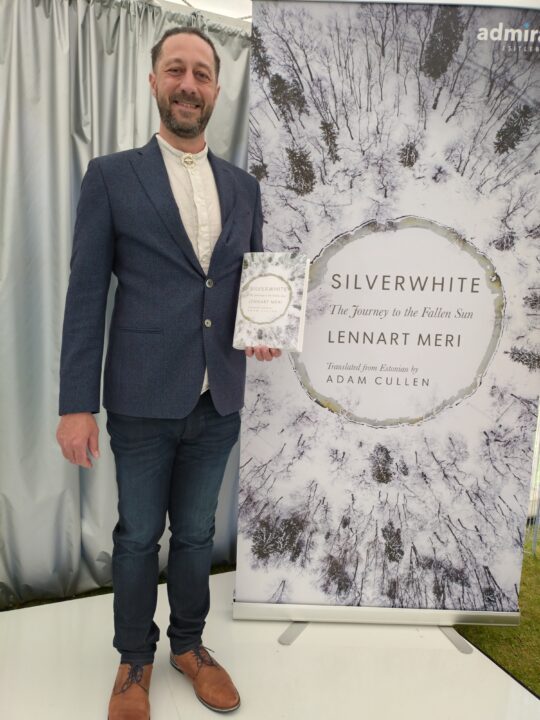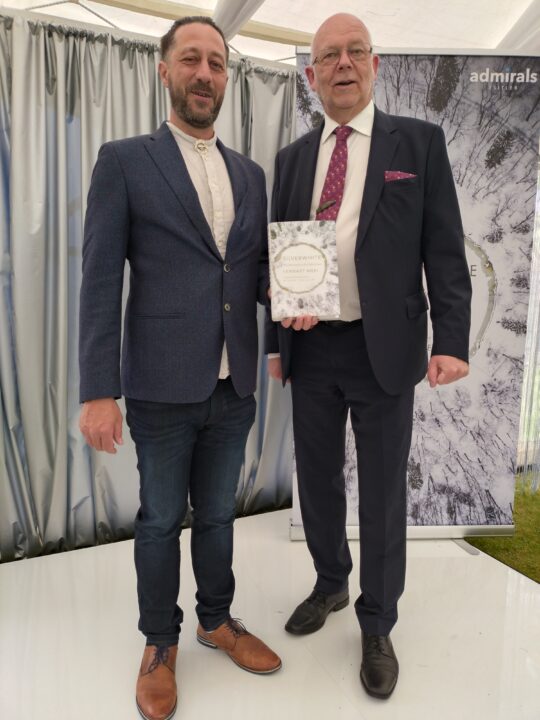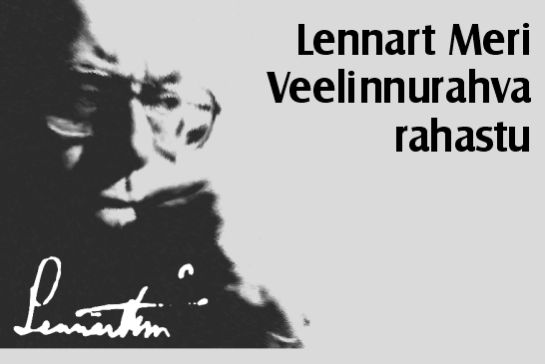Lennart Meri’s “Silverwhite” presented in a high-profile event

On 28 May, Lennart Meri‘s book “Silverwhite” was presented at the British Embassy in Pirita-Kose. The book was translated into English by Adam Cullen and the foreword was written by political journalist Edward Lucas. The speech was delivered by, among others, President Alar Karis and Lennart Meri’s son and long-time Fenno-Ugria partner Mart Meri of the Estonian Institute.
Here we publish the speech of Mart Meri:
“Dear President of the Republic, Ambassador, Excellencies, Ladies and Gentlemen!
Today is a very remarkable day! And a remarkable spring in terms of the “Silverwhite” in the history of the book.
“Lugupeetud vabariigi president, austatud suursaadik, ekstsellentsid, daamid ja härrad!
Väga tähelepanuvääriv päev on täna! Ja tähelepanuvääriv kevad raamatulooliselt “Hõbevalge” seisukohalt.
Lennart started looking for ways to translate “Silverwhite” into English in the mid-1980s. At that time, permission had to be sought from Moscow. There, it was decided what to translate, into which language to translate, to whom to translate. Lennart was not interested in this, he acted independently: he looked for interested parties abroad, and he also looked for a translator among or through literary men from Estonia. As we know – it didn’t work. But now – forty years later! – it is here on our table. Not a thing, but “Silverwhite” in English!
This book is on the table thanks to Alexander Cikhilov – thanks to his sincere interest in Lennart’s books. He told me that he would also like to read “Silverwhite”, but his Estonian is not so good yet. And he asked with astonishement how it was possible that “Silverwhite” could not be read in English. Well, it couldn’t. To which he said: but let’s do it then! Thank you, Alexander!
And Adam Cullen! Adam – great job! Do you remember when I wrote to you in March 2022, three years ago, that Silverwhite was waiting to be translated – wondering if you would take the risk of translating it yourself. “Think carefully!”, I said. And you replied a day later that it was impossible to refuse such a proposal. It was not an easy job – I know that. Folk songs! Historical boatbuilding terms! A huge number of quotations from ancient authors – some of which are interpreted differently in English today than they were when “Silverwhite” was written half a century ago. Thank you, Adam!
And the publisher Hurst! Thank you, Michael Dwyer! We’ve had a long correspondence over these three years – and that’s the way it should be with a good publisher. And Hurst is! Thank you, Michael, and everyone else on your team! It’s done!
The rest is known to readers.
Why did Lennart write “Silverwhite”?
First of all, history is always fascinating. More exciting than what we are taught at school. “Silverwhite” can be read as a thriller.
Secondly – and more importantly – Lennart wrote “Silverwhite” to prove that the world has always been open. At that time, when he wrote “Silverwhite”, Estonia was enclosed behind the Iron Curtain, like a land without a past, where a few people happened to speak a language called Estonian.
In this context, “Silverwhite” was a political manifesto – yes, long and complicated – but with a clear message that history exists and that a normal world is an open world. Estonian readers grasped this immediately, and “Silverwhite” became one of Estonia’s quintessential texts – even for those who might not have had time to read it. But the message got through.
This year we are celebrating the Year of the Estonian Book – five hundred years have passed since the first book in Estonian was published. “Silverwhite” is one small piece of the history of the Estonian book.
And today I can tell you that next year we will be celebrating fifty years since the publication of “Silverwhite” with an exciting exhibition at the Estonian Maritime Museum in Seaplane Harbour. I hope to see you again there!”




